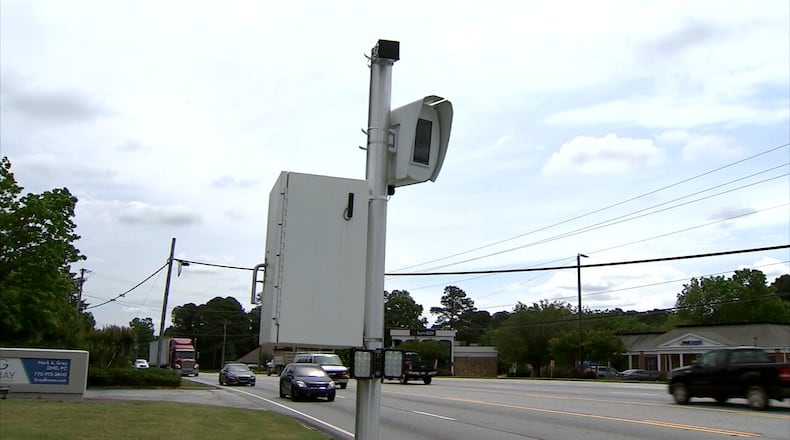Recent citizen angst with automated, speed-detecting cameras in school zones has seemingly come to a head. While a resounding majority of Georgia lawmakers voted in 2018 to allow the cameras, opposition is mounting in this session.
State Rep, Dale Washburn, R-Macon, has made prohibition of these cameras his top priority in this session.
“Local governments are using these school-zone cameras to rake in revenue and to entrap people,” Washburn told The Atlanta Journal-Constitution.
Washburn’s angst is based on the complaints he has gotten from his constituents, plus his own observations: the cameras are often hard to see, are not always accompanied by flashing yellow lights and signs, and are sometimes on roads not immediately near schools. Some of these streets lack sidewalks, which would make them lousy candidates for pedestrians anyway.
But the biggest grievance that Washburn and some local investigative reporters have heard is that the cameras are penalizing people during hours that they would not expect. School-zone lights are usually only illuminated during arrival and departure times.
Of course, people should not speed. But when the speed limit changes at certain hours — and then is enforced inconsistently — people really do feel trapped. And they do not know until they get mailed a ticket.
Problematically, someone could rack up tickets multiple times before getting that mail, putting them on the hook for potentially hundreds of dollars in fines.
Washburn got one of those tickets in the Macon area. He said he had no idea the cameras were on that stretch of road or that the road was actually part of a school zone. “I was actually relieved because it gave me firsthand knowledge of how these operate,” Washburn said. “It was 11:05 a.m., after the time of the flashing lights.”
Washburn’s opposition to speed cameras preceded his brush with them and only added fuel to the fire. He was in his wife’s car, which meant he had to get a form notarized and sent by certified mail that said he was the driver and not her.
Washburn also said that appealing a camera’s ruling is much more difficult in these cases, because the enforcement actually comes from the private companies that operate them (which collect about one-third of the revenue) and because the tickets are only fines and do not accrue driving record points.
And, Washburn explained, the actual ticket he received looked like a piece of junk mail. So violators could easily find themselves in arrears if they accidentally trashed the ticket.
Because private companies, which have a strong lobby for the cameras at the Gold Dome, manage the cameras, they are the ones with whom citizens send their complaints. Local governments defer. So the chain of command on a law enforcement issue is very cloudy.
“I had come to the conclusion that this is a business model and not a method for children’s safety,” Washburn said. He noted that more than $100 million in fines have been collected from these cameras in their short existence. He said one rural school’s set of cameras had brought in more than $500,000 alone. That is a heavy burden.
Washburn and other rightful opponents want a total ban on school-zone cameras and instead would like to see speed calming devices, like speed bumps and tables and a greater presence of police.
But local governments would then be taking in less revenue and allotting more in their budget to those other fixes.
Given how distracted and lousy drivers have become and how much bigger the average vehicle is, I believe that reform, not prohibition, is in immediate order. Every school zone with speed cameras should have large signs noting the cameras and flashing lights on every street. The presence of those alone should act as a deterrent for speeding drivers.
The cameras should only ding drivers during school hours on days that school is actually in session. If my Roomba reliably vacuums at 9 a.m. each day, then these sophisticated cameras can follow a timer. The companies (and local governments) that are making bank off of speed cameras can afford to have someone on standby to monitor the time and date parameters on each camera and to review each individual automated violation.
Doug Turnbull has covered Atlanta traffic for over 20 years and written “Gridlock Guy” since 2017. Doug also co-hosts the “Five to Go Podcast,” a weekly deep dive on stories in motorsports. Contact him at fireballturnbull@gmail.com.
About the Author
Keep Reading
The Latest
Featured


